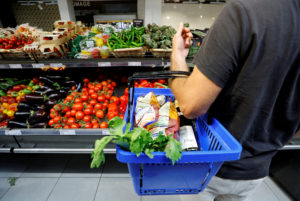BEIJING -China’s factory-gate prices showed an annual fall for a second month in November while consumer inflation slowed, indicating weak economic activity and soft demand.
The producer price index (PPI) was down 1.3 percent on a year earlier, unchanged from an annual contraction seen in October, according to National Bureau of Statistics (NBS) data issued on Friday. That was slower than a 1.4 percent fall tipped in a Reuters poll.
The November consumer price index (CPI) climbed 1.6 percent from a year earlier, slowing from the 2.1 percent annual rise seen in October and in line with a Reuters poll.
China’s central bank has said it expects consumer inflation to remain moderate next year.
The producer price deflation and milder consumer price inflation of November accompanied record COVID-19 infections and related curbs that disrupted production and curbed mobility.
Growth in the world’s second-largest economy has been sagging this year, largely impacted by the uncompromising COVID-19 curbs as global demand also wavered.
Last month, COVID case counts rose to historic highs, prompting widespread lockdowns and mobility restrictions.
Exports and imports for November shrank the most in two and a half years, missing forecasts, with economists predicting further exports decline as world trade retreats sharply following central banks’ aggressive moves to tame inflation.
China announced significant adjustments to pandemic controls curbs this week, easing policies on movement, quarantine and lockdowns. The changes were aimed at reducing the impact on social and economic activity.
Analysts and market watchers welcomed the shift, saying it would benefit consumption.
The International Monetary Fund said last week that further calibrating China’s COVID strategy would be critical to sustaining and balancing the nation’s economic recovery.


